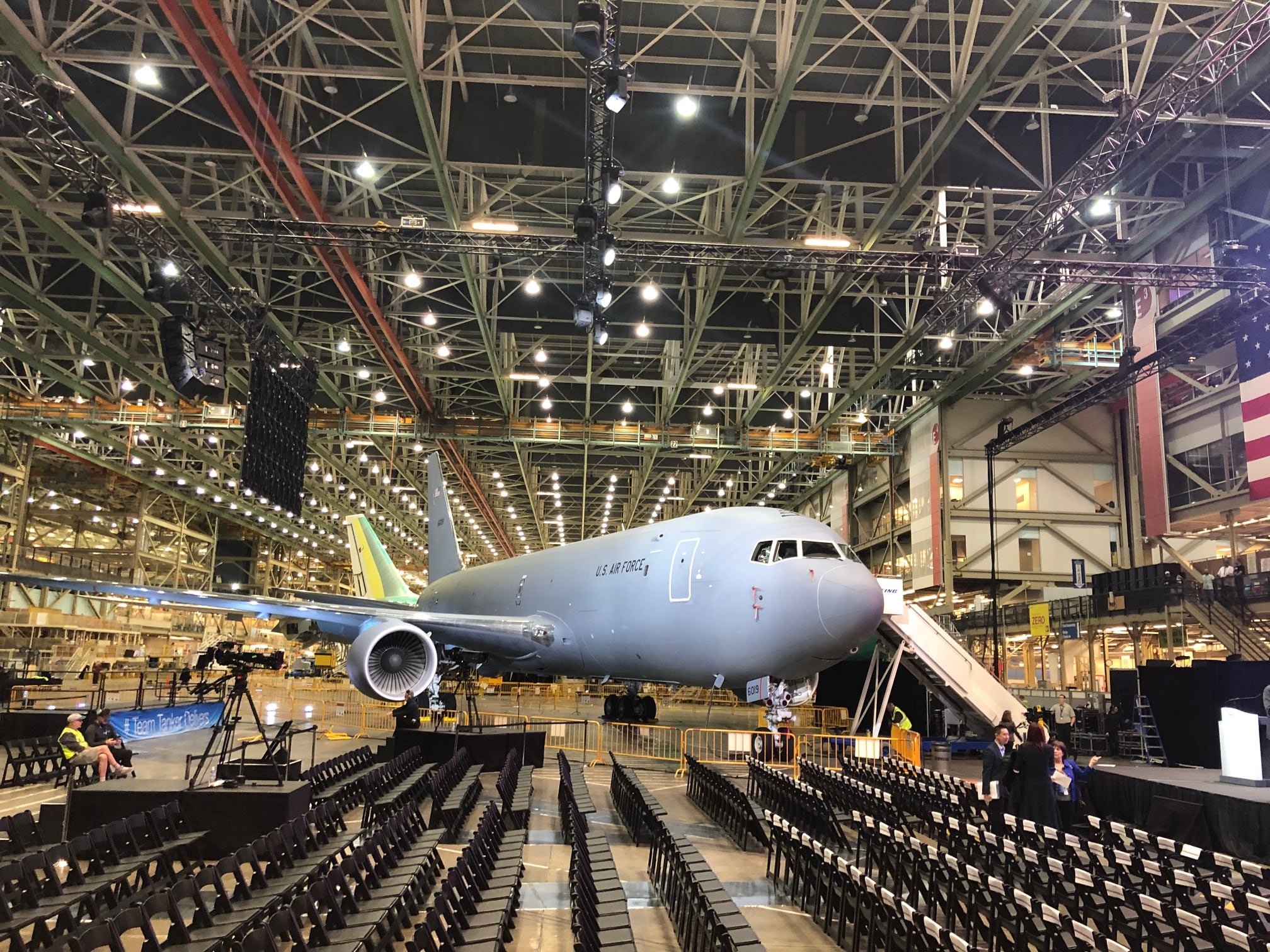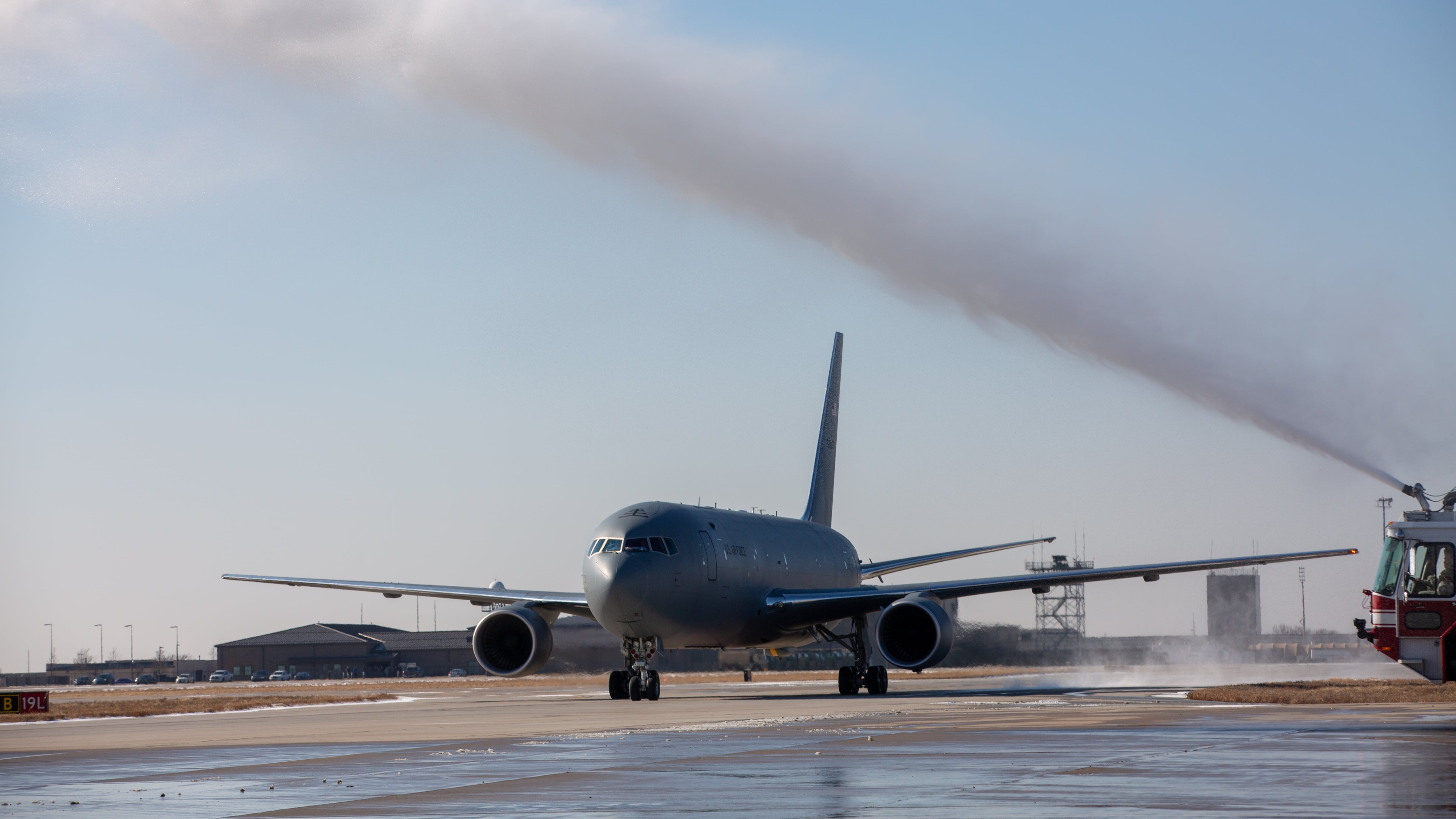WASHINGTON — The U.S. Air Force has begun accepting KC-46 tankers from Boeing, but the service’s top weapons buyer says it will remain vigilant for problems emerging from the company’s production line.
Boeing delivered the seventh KC-46 on March 11 to Altus Air Force Base, Oklahoma, after a series of foreign object debris, or FOD, incidents led the service to suspend deliveries for more than two weeks.
“The Air Force service acquisition executive and [Air Mobility Command] commander received an outbrief of the Defense Contract Management Agency-approved corrective action plan [on] March 11,” AMC spokeswoman Rose Riley said in a statement Monday.
RELATED

As directed by the plan “subsequent deliveries will occur as Boeing successfully completes each aircraft’s inspections and actions assigned from today’s review.”
Will Roper, the assistant secretary of the Air Force for acquisition, technology and logistics, visited Boeing’s Everett, Washington-based delivery center on Monday. During a Wednesday conference, Roper said he was satisfied with the response of Boeing’s leadership, noting that “they have taken serious actions to make sure that their processes are followed.”
However, he added that the service will continue closely scrutinizing planes before accepting them.
“Culture doesn’t happen because you had a meeting. It happens because you did the little things right time and time after time,” he said during a McAleese & Associates conference.
“Which is why for us to re-bestow trust on that line, we’re going to be measuring as we go, and we expect to see many months of pristine airplanes before we’ll say the culture is back. So for the next year or so, we’re going to be monitoring month by month saying: ‘Is it getting better?’ ”
RELATED

The Air Force accepted its first KC-46 in January, after years of schedule delays and cost overruns that have left Boeing paying more than $3 billion above the ceiling of its fixed-price contract with the service. Tankers have been delivered to Altus as well as McConnell Air Force Base in Kansas.
A memo obtained by The Seattle Times, which originally broke the story, alluded to eight FOD events documented on planes moving through production and two occurrences in KC-46s delivered to the Air Force. The report referred to incidents where Boeing personnel left tools inside tankers waiting to be accepted by the service.
Since then, the Air Force and the Defense Contract Management Agency have outlined 13 different process improvements that it expects Boeing to put in place.
Roper has said that the FOD problems stem from a lack of adherence to standards and a breakdown of culture, not from any larger issue that may point to flaws in the KC-46’s design.
“Processes are in place to prevent FOD or to get rid of it when it occurs by doing it when it happens. This was Boeing having the right processes but simply not following them,” he said.
It appears Boeing’s leadership is taking steps to convey to its workers the seriousness of the issue. Defense One obtained an internal company email that declares a “FOD Amnesty Day” on Friday and refers to the ongoing FOD problems.
“We all have a responsibility to maintain safe, clean, efficient and FOD-free working areas and it’s so vitally important to who we are we’re making it a [Boeing Defense, Space and Security]-wide priority,” wrote Gena Lovett, vice president for manufacturing, safety and quality, and Ursula English, vice president of total quality.
Valerie Insinna is Defense News' air warfare reporter. She previously worked the Navy/congressional beats for Defense Daily, which followed almost three years as a staff writer for National Defense Magazine. Prior to that, she worked as an editorial assistant for the Tokyo Shimbun’s Washington bureau.





